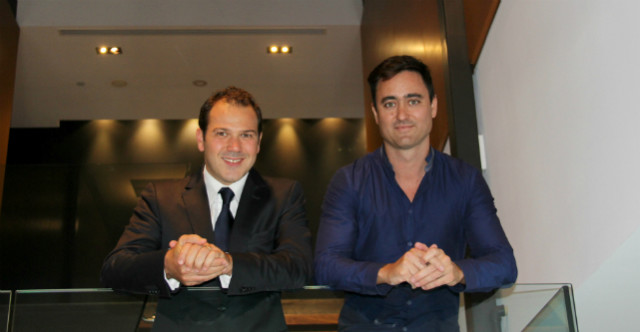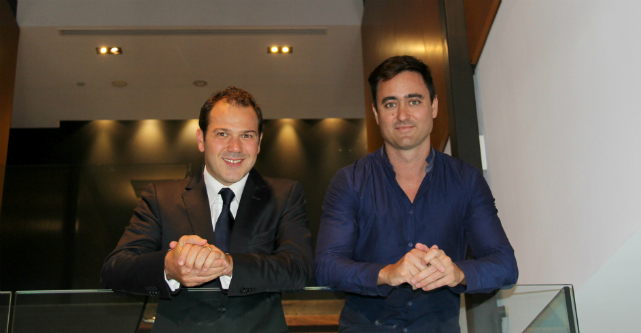Melbourne startup LiveHire plots a $10 million IPO

A Melbourne HR startup has revealed plans for a $10 million ASX-listing that would value the company at $40 million.
Cloud-based HR productivity tool LiveHire has lodged a prospectus with ASIC outlining its plan to offer 50 million new shares at $0.20 each, representing 25% of the startup’s post-issue share capital.
The startup, which aims to deliver talent-on-demand for businesses, will list on the ASX at the start of June if everything goes to plan.
A natural step forward
LiveHire co-founder Mike Haywood says the groundwork for the listing began four and a half years ago, and is a “natural step” for the tech startup.
“We’ve been through four private funding rounds along with the deliberate growth of the business as we hit incremental levels,” Haywood tells StartupSmart.
“Typically with tech companies 90% fail before the third funding round. It was important for us to pass through those rounds privately before we decided to go on market. That’s the natural move now.”
LiveHire co-founder and managing director Antonluigi Gozzi adds that it’s important for companies operating in the HR space to be transparent, and the public listing is the right way to go.
“It’s very, very important that technology like this is agnostic of any other technology, and from an investment perspective you don’t want to be aligning yourself with any particular parties out there in the space,” Gozzi tells StartupSmart.
“You need to be trusted by all so it’s a natural growth path to be a listed company.”
The IPO cash injection will be used to expand the company’s operations locally and ready it for international growth.
“It’s all about scale,” Haywood says.
“As LiveHire continues to use more communities the network effect continues to grow. We’re in an accelerate growth phase now so it’s about building out that network first in Australia and New Zealand and then offshore in Asia and the US.”
Funding the expansion plans
Despite Haywood saying the company earns revenue from users from day one, the company saw a net loss of more than $2 million in the six months ending December 31, according to the company’s prospectus.
LiveHire operates on a subscription model with users charged a 50 cent fee for each ‘Talent community connection’.
But Haywood says the company has doubled in the last quarter in terms of the employees and clients and is ready to aggressively expand.
“We’re very much finished with the creation phase and now we’re in the acceleration phase,” he says.
“Any tech company that ticks the boxes and is in a rapid scaling mode has a natural alignment to being in a listed environment. There’s a general sense of urgency where you need to deliver, and that’s what we’ve been trying to deliver and have been since the beginning of the year.”
Gozzi says investors have already shown strong interest in the public offering.
“There’s a lot of interest from sophisticated investors and funds and we’re very pleased with how things are going,” he says.
“People really value the fact that the company has been conservative and taken it all in steps.
“We’ve generated very good technology and we’ve got a very sticky, very supportive client base.”
Like email versus Slack
LiveHire is a cloud-based productivity tool for HR sourcing and recruitment, offering a “talent community” software solution.
Its prospectus lists the likes of SEEK, PageUP and LinkedIn as its primary competitors, but Haywood says the startup stands out from the pack.
“We’re in our own category,” he says.
“LiveHire is hosting talent communities which are part of a broader ecosystem where the talent is joining different communities which are part of a broader ecosystem – users can have the one profile and update it privately.
“This is effectively a new category that more effectively manages the flow of talent into a business.
“Where LiveHire is playing it doesn’t currently have a peer. It’s like email versus Slack.”
LiveHire recently recruited a series of high-flying corporates from the likes of Telstra and Gumtree, and says these people are crucial to the company’s prospects.
“The success of the company currently depends to a significant extend on its management team,” the prospectus reads.
“The loss of key management personnel or any delay in their replacement could have a significant adverse effect on the management of the company, its financial performance and future prospects.”
Placing user experience at the fore
According to Gozzi, a core element of LiveHire’s success has been its “relentless” focus on the user’s experience and how the technology can best service its customers.
He says the company’s user experience designers regularly spend a ‘day in the life’ of LiveHire customers with the aim of understanding how the platform is used.
“They spend time with our customers – there’s no better way to understand how the technology gets used and what the people need,” he says.
“Technology is something you need to work on with your customers. You need to bring customers in early on and iterate with them until the technology is efficient.
“You need to know your technology inside out – it’s not something you can just outsource and think will get done.”
Haywood says that the aim is for the technology to become an integral part of its users’ day-to-day life.
“For a technology to be valuable it needs to encompass a lot of someone’s work day,” he says.
“They’re engaging with the platform to deliver the productivity. You need to see where the leakages are and where people are going outside the system to achieve things when they should be staying inside.
“You need to become a part of someone’s work day.”
This process requires the founders to be constantly taking users’ feedback on board, he says.
“You have to be relentlessly curious about how to deliver value to the clients and not be afraid to get constant feedback, and bad feedback,” Haywood says.
“It’s about gluing yourself to the customers and sitting in their office to the point of being annoying.”
And most importantly, Gozzi says it’s about learning from past failures.
“It takes many iterations and pivots,” he says.
“You learn from your mistakes and fail forward. You need to take them as learnings and understand that even if your vision remains clear your product has to continually evolve until you can see it scaling naturally.”
Follow StartupSmart on Facebook, Twitter,LinkedIn and SoundCloud.

